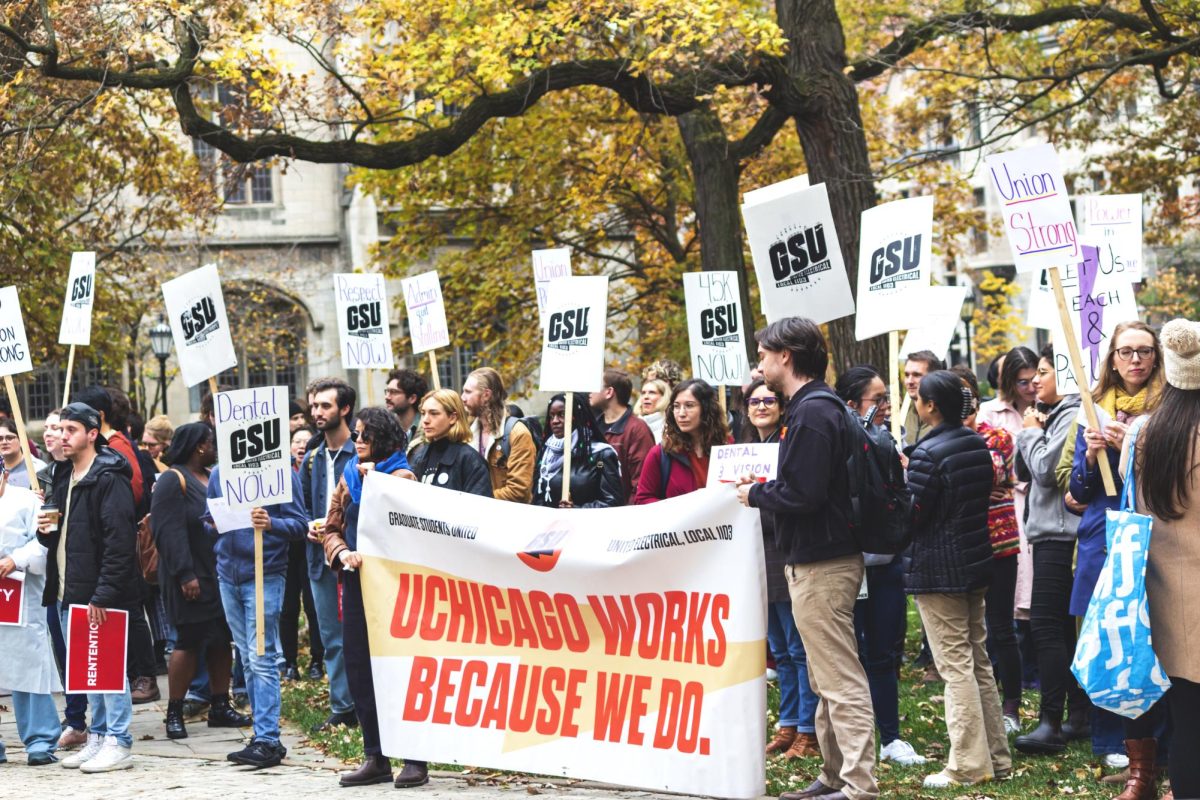Graduate Students United–United Electrical (GSU-UE) has reached a tentative collective bargaining agreement with the University, the union announced on Wednesday, March 6.
The agreement comes nearly four weeks after the Union signaled its willingness to strike over a perceived lack of movement from the University on the topic of a contract.
GSU-UE, which the University recognized last year after two recognition votes and nearly 17 years of organizing, has been negotiating its first contract with the administration since last May.
The new agreement contains a number of major boons for graduate student workers, including an increased minimum funding rate, increased childcare stipends, and the ability to involve the union in discrimination and abuse of authority complaints.
In an email to members of the University community on March 7, Provost Katherine Baicker said the agreement reflected the University’s “significant ongoing commitment to and investment in our graduate programs, and the recognition of the important teaching and research that graduate students do at the University while pursuing their degrees.”
In terms of compensation, the agreement raises the minimum stipend for Ph.D. students to $41,000 starting July 1 and to $45,000 on October 1, with 3-percent increases to come in each of the next two years.
The agreement also stipulates a $19 minimum hourly wage, a value also set to increase by 2.5 percent each year over the same period. Graduate students making more than the stipend minimum will receive an increase in wage of 2.5 percent on July 1, October 1, and annually for the next two years.
The agreement also contains a number of additional annual payments for Ph.D. students conducting teaching or research, including $300 for dental care, $225 for retirement savings, $100 for vision care, and $100 for transportation. Additionally, graduate students serving as research or teaching assistants are guaranteed funding for the quarter if their position is canceled at any point.
Beyond compensation, the union secured a number of long-sought policy stipulations, including union representation in Title IX hearings and the right for members to involve the union in cases of discrimination and abuse of authority.
Based on the summary released by the union, GSU-UE was unable to secure the addition of caste and political views, a point of focus for negotiators, in the contract’s non-discrimination guarantees.
Before being enforced, the agreement between the University and GSU-UE must be ratified by a full vote of the union’s membership. GSU-UE is planning to hold a contract ratification vote meeting on March 25.









